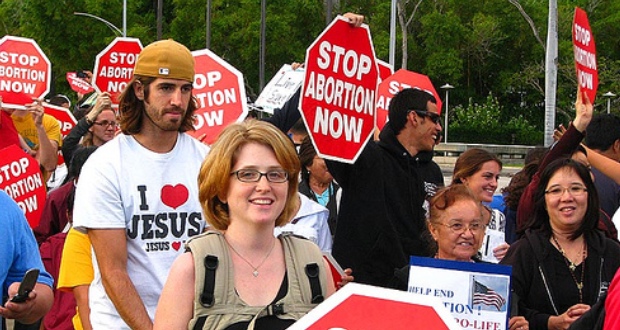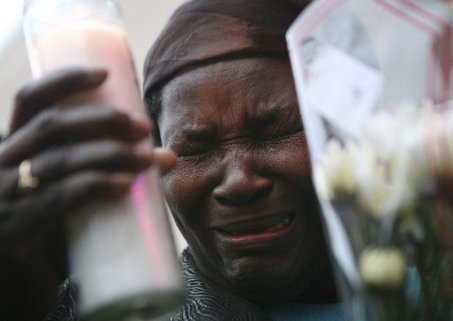Jesus And Jeremiah Teach Us To Stand Up For What Is Right, And Trust God

By Fr Dexter Brereton, CSSp ThM STL
This week’s readings challenge us not to be afraid to stand up and speak out for what is right; to be like the Prophet Jeremiah and like Jesus.
Luke 4: 21-30
In this weekend’s Gospel passage, Jesus enters into open conflict with the people of his hometown as he takes up a position which apparently calls their sincerity into question. This is a wonderful passage for us today, since, as Gustavo Gutierrez asserts: “theology seems to have avoided for a long time reflecting on the conflictual character of human history…” It is very nice to be loved and respected, to have all people speak well of you. Jesus’ harsh and uncompromising stance however, falls harshly on his listeners’ ears and the shock and embarrassment that they suffer as he exposes their hypocrisy, pushes them to violence. He loses the respect and popularity he may have had as ‘gracious words came from his lips.’ Jesus said what he had to say – as we say in Trinidadian English: “Who vex bus!” (In other words, ‘If you’re angry, too bad!’ ‘tough titties!’).
Up until the explosion of the clerical sex abuse scandal in the Church some years ago, the Catholic Church as a social institution had worked hard at earning and keeping the respect of the powerful actors in both political and civil society. Now that the very real sinfulness and shortcomings of the Church were laid bare for all the world to see, many commentators took the opportunity to take aim at fundamental points of Catholic teaching on the family, politics and society. One has the impression that many out there seek to undermine the message by pointing to the sheer brokenness of the messenger. Rather than engage in nostalgia for the past or self-pity, it is important for people of faith today to learn what they can from the criticisms leveled at the Church and loyally but consistently continue to challenge the society in which we live, to be better than it is.
In his 1998 encyclical letter Fides et Ratio, on the relationship between Faith and Reason, our Holy Father, Pope John Paul II speaks about what he calls the ‘diakonia (service) of truth.’ He says:
It is her duty to serve humanity in different ways, but one way in particular imposes a responsibility of a quite special kind: the diakonia of the truth. This mission on the one hand makes the believing community a partner in humanity’s shared struggle to arrive at truth; and on the other hand it obliges the believing community to proclaim the certitudes arrived at, albeit with a sense that every truth attained is but a step towards that fullness of truth which will appear with the final Revelation of God
As with Jesus, the world would prefer to hear only ‘gracious words coming from our lips’ in other words, people prefer an interpretation of the Gospel message that is completely domesticated and which does not ‘rock the boat’ and challenge the certitudes of our modern age. This is precisely what Jesus refused to do and he paid the price in a shocking and calamitous loss of popularity. This diakonia of the truth, is also a service to be rendered by persons in other walks of life as well. I remember a story from Caribbean political history which brings home to me the cost to be borne by politicians who bravely attempt to stand up for an understanding of the truth that is not shared by others, especially when that understanding puts the sincerity of the ‘majority’ into question.
In October 1983, the United States of America, during the administration of President Ronald Regan made the decision that it was time to end the suffering of the Grenadian people by the use of military force as their leftist government splintered and collapsed with resulting murder and mayhem. They would also take the opportunity to remove unhealthy ‘leftist/communist’ (i.e. Cuban) influence from the island. It was, in a real sense, a Caribbean manifestation of the ‘Cold War’ then raging between the United States and its allies and the Soviet Bloc. President Regan appeared on television along with one of our illustrious Caribbean Prime Ministers, the late Dame Eugenia Charles to announce the invasion, while at the same time American diplomats sought the involvement of other Caribbean governments in forming part of a coalition force which would go in and liberate the Grenadian people.
The Trinidadian Prime Minister at the time, Mr George Chambers quietly declined the invitation to join, a move which was widely unpopular in the Caribbean region at the time. Visiting Grenada years later, a Grenadian friend told me that at the end of the hostilities, after order had been restored, Mr Chambers as part of the visiting delegation of Caribbean leaders was booed from the airport into the Capital at St George’s. In a sense he had been taken to the brow of the hill the town was built on…with the intention of throwing him down the cliff. The country’s reputation recovered and this defiant, if not courageous stance was noticed in international diplomatic circles. Looking back on it, one wonders whether the violence of the reaction was not also partly due to the fact that in refusing to take part in the liberation/invasion of Grenada, he was giving this political action by the US an interpretation which called the ‘bona fides’ of much of the international community into question. As with Jesus, there was a price to pay for standing on principle.
Many of us have had to take an unpopular stance, either against our family or our religious community. We have had on some occasions to tell those that we love and respect that they were not as good as they thought they were. Many of the communities to which we belong have an image which is precious and jealously guarded. To publicly refuse to go along with the group is somehow to call the image of the family or community into question. Yet, isn’t this the role of the prophet? Isn’t the role of God’s messengers to call our deepest certitudes about good and bad, the righteous and the wicked into question? Let us pray for the courage to stand up like Jesus and call the people of our own household or party into question when necessary. Amen.






